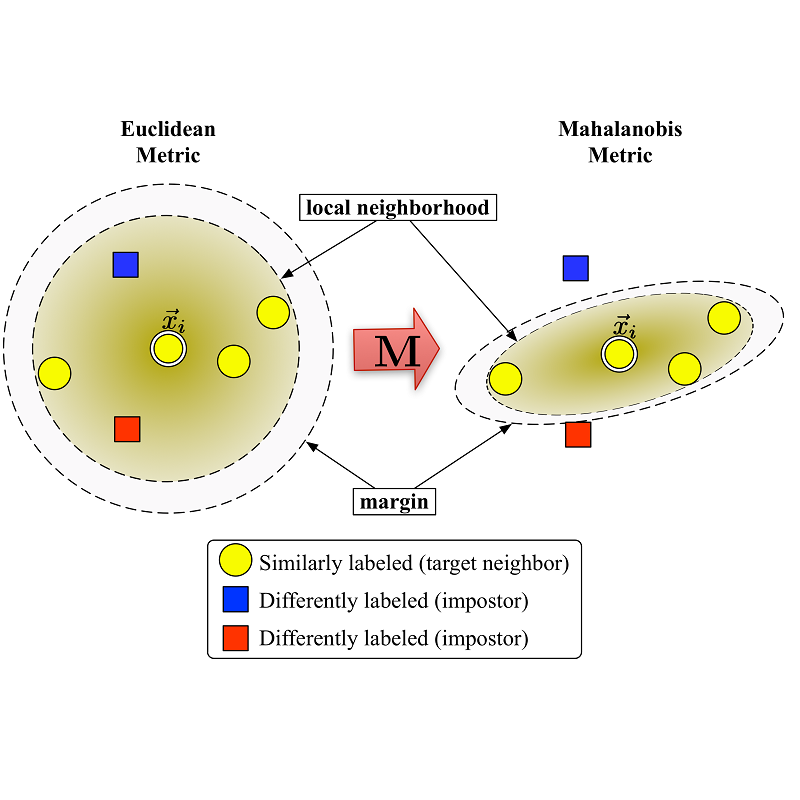In this work we study generalization guarantees for the metric learning problem, where the metric is induced by a neural network type embedding of the data. Specifically, we provide uniform generalization bounds for two regimes -- the sparse regime, and a non-sparse regime which we term \emph{bounded amplification}. The sparse regime bounds correspond to situations where $\ell_1$-type norms of the parameters are small. Similarly to the situation in classification, solutions satisfying such bounds can be obtained by an appropriate regularization of the problem. On the other hand, unregularized SGD optimization of a metric learning loss typically does not produce sparse solutions. We show that despite this lack of sparsity, by relying on a different, new property of the solutions, it is still possible to provide dimension free generalization guarantees. Consequently, these bounds can explain generalization in non sparse real experimental situations. We illustrate the studied phenomena on the MNIST and 20newsgroups datasets.
翻译:在这项工作中,我们研究了衡量标准学习问题的一般化保障,衡量标准是由嵌入数据的神经网络类型诱发的。具体地说,我们为两种制度 -- -- 稀疏的制度和非粗化的制度 -- -- 提供了统一的一般化界限,我们称之为\emph{受限制的增缩制度}。稀疏的制度界限与参数的1美元类型规范很小的情况相对应。与分类情况相似,通过对问题进行适当规范,可以找到满足这种界限的解决办法。另一方面,不正规的SGD优化衡量标准学习损失通常不会产生稀疏的解决办法。我们表明,尽管缺乏这种松散性,但依靠不同、新的解决方案属性,仍然有可能提供维度的、自由的概括化保证。因此,这些界限可以解释非稀疏的实际实验情况中的一般化。我们举例说明了所研究的关于MNIST和20个新组数据集的现象。




